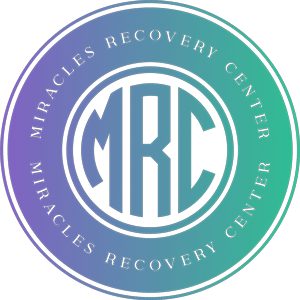Cognitive-Behavioral Therapy

Rewiring Thoughts for Real, Lasting Change
Cognitive-Behavioral Therapy (CBT) is one of the most effective, evidence-based approaches in addiction and mental health treatment. It helps clients identify and change negative thought patterns that drive destructive behaviors — creating healthier coping strategies and emotional balance.
At Miracles Recovery, CBT is a core component of our treatment model across all levels of care. Our therapists guide clients through structured sessions that promote insight, accountability, and resilience — helping them replace harmful cycles with purpose-driven habits.
What Is Cognitive-Behavioral Therapy
CBT is a goal-oriented, practical form of therapy that focuses on how your thoughts, emotions, and actions influence one another. By identifying distorted thinking and replacing it with realistic, constructive beliefs, clients gain control over their emotions and decisions — a crucial step in long-term recovery.
CBT doesn’t just help you stop using substances — it helps you rebuild your mindset for a healthier, more fulfilling life.
How CBT Helps in Addiction and Mental Health Recovery
MAT is most commonly used for:
- Breaks the cycle of negative thoughts and reactions that lead to relapse
- Improves self-awareness and decision-making under stress
- Develops emotional control and problem-solving skills
- Addresses co-occurring conditions such as anxiety, depression, and trauma
- Encourages lasting behavior change through consistent practice
Common Issues Treated with CBT
- Substance use disorders (alcohol, drugs, prescription medications)
- Anxiety and panic attacks
- Depression and low motivation
- Post-traumatic stress disorder (PTSD)
- Anger management and impulse control
- Relationship and communication difficulties

What CBT Looks Like in Practice
Each CBT session is collaborative, structured, and personalized. Clients work closely with their therapist to:
- Identify negative or distorted thought patterns
- Understand how these thoughts affect feelings and actions
- Challenge and replace self-defeating beliefs
- Practice new coping and communication strategies
- Track progress through real-world application and feedback
CBT at Miracles Recovery
Partial Hospitalization Program (PHP) for intensive daily support
Intensive Outpatient Program (IOP) and Evening IOP for flexible therapy schedules
Outpatient Treatment (OP) for ongoing progress and relapse prevention
Thought reframing and journaling
Behavioral activation (replacing unhealthy routines)
Coping-skills training
Trigger and craving management
Relapse prevention exercises
Self-compassion and mindfulness integration
Why CBT Works
CBT is proven to help clients achieve long-term recovery because it targets both the symptoms and the root causes of addiction and emotional distress. By teaching clients how to recognize and replace harmful thinking, they gain the ability to make better choices, manage emotions, and sustain progress.

Why Choose Miracles Recovery for CBT
- Licensed therapists certified in Cognitive-Behavioral Therapy
- Individual and group CBT sessions tailored to personal goals
- Integration with trauma therapy, psychiatry, and holistic care
- Focus on practical, real-world skills that last beyond treatment
- In-network insurance and clear financial transparency
- Supportive, compassionate environment focused on empowerment
What To Expect
Clinical assessment to identify thought patterns and triggers
Personalized CBT plan targeting behaviors and emotional responses
Weekly individual or group sessions for practice and feedback
Skill application between sessions to reinforce change
Ongoing progress reviews and relapse prevention strategies
